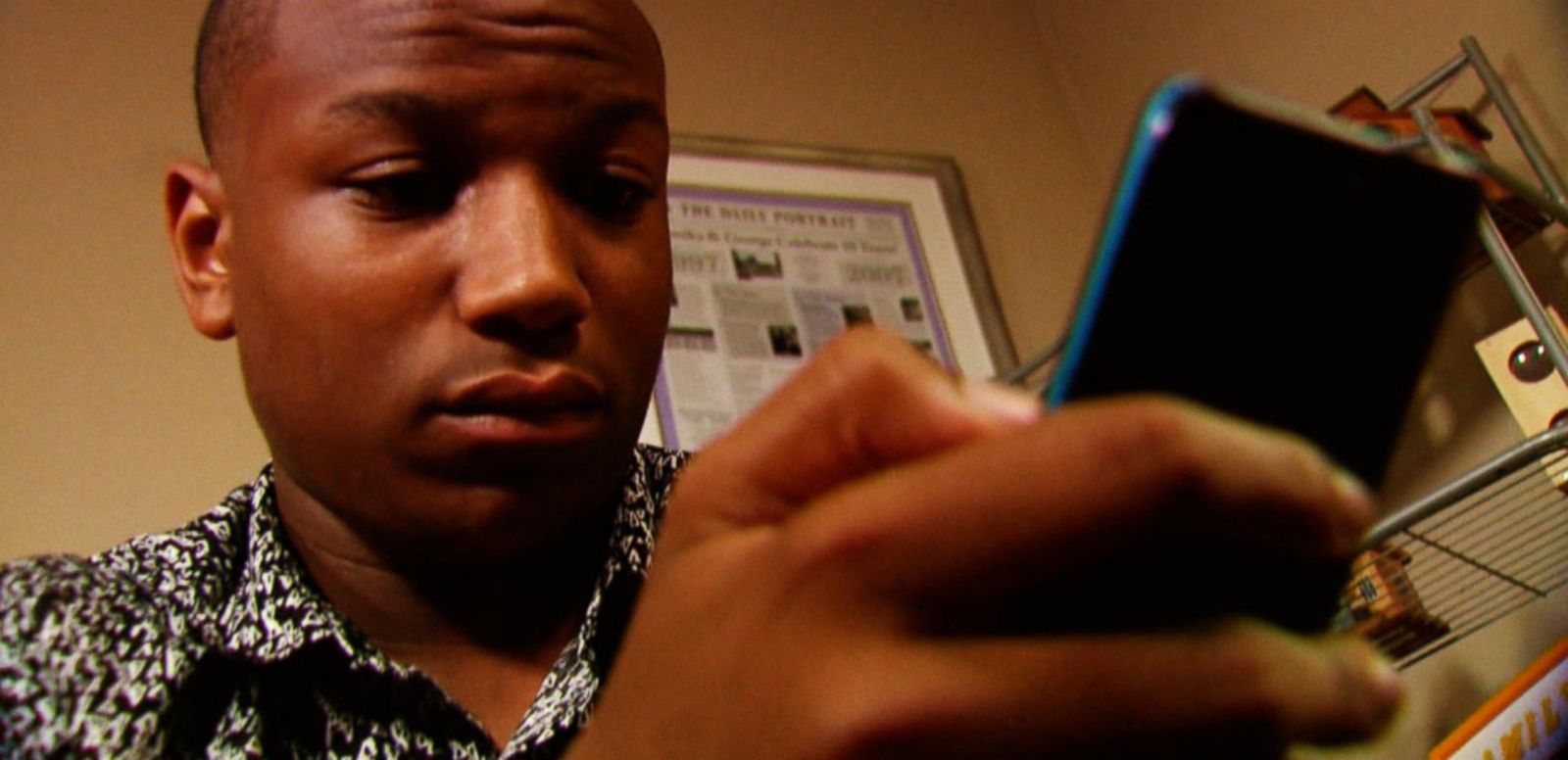Kids who’re overly attached to their phones, possibly crossing the line into addiction, can be a problem for many families.
Jason Clark, 15, of Little Rock, Arkansas, is no different. He loves his smartphone, but he’s so attached to it that his family worries he might one day need therapy to get his habit under control.
“Good Morning America” asked Jason to put an app on his phone to track his phone use.
For two days in a row, he clocked in at six hours of screen time.
His mom, Tomika Clark, said there are days her son will spend eight or even 12 hours on the phone morning, noon and night, at home, at school, and even at the library.
Between social media, music, texting and gaming, the hours add up.
Clark said she thinks his phone use has crossed a line.

“When you’re talking about addiction, you’re talking about, ‘I can’t live without it,’” she explained, adding that she “knows he is” dependent on his phone.
Cellphone addiction isn’t officially designated as a clinical disorder like drug or alcohol addiction, but licensed Maryland psychologist Ed Spector, an expert on the healthy use of technology, thinks it should be.
He treats people who have what he calls “compulsive use of technology.”
“Their brains change in similar ways to real chemical-addicts,” Spector told ABC News. “If you talk to the parents of my clients, they come in and they say, ‘My kid’s like a junkie.’ They feel like it’s an addiction.”
But when does it go from being normal, acceptable teenage behavior to a problem that needs to be addressed?
Spector said not to just focus on the hours.
“When we talk about compulsion, it’s not the behavior, it’s whether you have control over it,” he said.
Clark says she worries Jason fits the definition and his compulsion is taking away from other parts of his life. She said as his smartphone use has gone up, his grades have gone down and she has noticed changes in his behavior.
“When somebody freaks out because you’re taking something they have an emotional attachment to, it is an addition,” she said.
Jason said he sees nothing wrong or abnormal about his phone use and doesn’t believe it has a major effect on other parts of his life, though he admits he could probably stand to cut back.

Caroline Knorr, parenting editor for Common Sense Media, outlined several phone-obsession warning signs: Depression, slipping grades, hostility, highly sensitive, strong preoccupation with phone and not being interested in activities they used to love.
Knorr also provided tips for parents to limit their kids’ phone use: Set up screen-free times and zones, limit multitasking, prohibit phones in the bedroom at night and be a good digital role model.
No comments:
Post a Comment